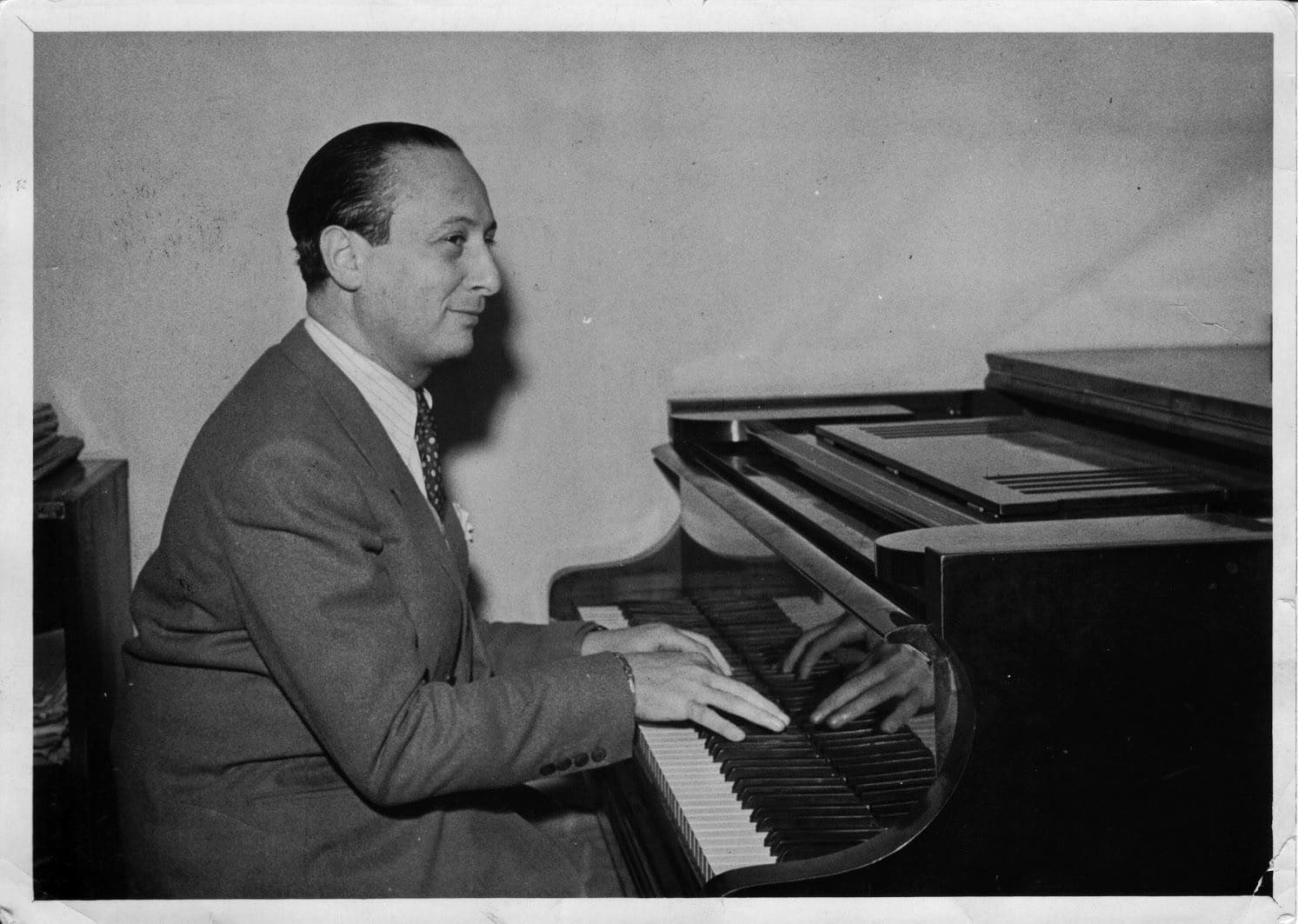
Wladyslaw Szpilman – Prolific composer whose musical talents enabled him to survive World War 2
This prolific Polish-Jewish composer, who created hundreds of songs and many orchestral pieces, passed away in July 2000, two years before the film “The Pianist” premiered. He miraculously escaped the Germans’ destruction of Polish Jews and survived the war in Warsaw.
Wladyslaw Szpilman began his first piano lessons with his mother and went on to study at the Higher School of Music in Warsaw from 1926 to 1930. He continued his studies in Berlin until 1933 before returning to Warsaw. In 1935, Szpilman became the house pianist for Polish State Radio in Warsaw and played classical works and jazz. He also played for the radio on September 1, 1939, the day that Germany invaded Poland and began World War 2. The last live broadcast the people heard before the German occupation was Szpilman’s performance of Chopin’s Nocturne in C sharp minor.
As a Polish Jew, Szpilman and his family were forced by the Germans to live in the Warsaw Ghetto, where he witnessed extensive suffering and death. What made his existence easier and safer was his extraordinary talent. He was a praised and in-demand pianist playing regularly in cafes and concert halls inside the Warsaw Ghetto.
Szpilman’s siblings and parents were sent to Treblinka, where they were murdered. Were it not for a Jewish Ghetto Policeman who saved him from being transported there, Szpilman would have shared their fate.
With the help of over 40 Poles, including Witold LutosÅ‚awski (a famous Polish composer), Irena Sendlerowa (who is credited with arranging the rescue of 2,500 Jewish children from the Warsaw Ghetto), and the Å»egota underground organization (the “Polish Council to Aid Jews” that was sponsored by the Polish government-in-exile in London), he managed to stay in hiding outside the ghetto ruins until the Warsaw Uprising broke out in August 1944.
Szpilman witnessed the agony and destruction of the city by the Germans in the summer of 1944 and when the uprising was over, he decided to stay in the city’s ruins. He was one of the few civilians who stayed in hiding, awaiting the Soviets’ arrival while living in appalling conditions.
Surprisingly, the man who saved his life was a German officer Wilhelm Hosenfeld, who provided him with food and kept his shelter safe. After the war, Szpilman successfully continued his career, resuming his work with the Polish State Radio and playing concerts until the mid-80’s.
His wartime stories became popular thanks to his memoir Miraculous Survival, which provided a basis for Roman Polanski’s film “The Pianist”. Polanski’s screen version of Szpilman’s survival story was praised by critics and received multiple awards and nominations.
This is a YouTube video with English subtitles in which Szpilman is interviewed and recounts his experiences as well as his strong loyalty to Poland:
https://www.youtube.com/watch?v=AOv36KgX4_Y&t=1596s.
In the video segment from to 24:34 to 27:10, Szpilman presents his true feelings about his Polish rescuers.
It’s interesting to note that his surname, Szpilman, is the Polish spelling of the German name “Spielman”. “Spielen” is the infinitive form of the German verb “to play”, as in a musical composition. Because Szpilman was a concert pianist, his surname was indeed fitting.
